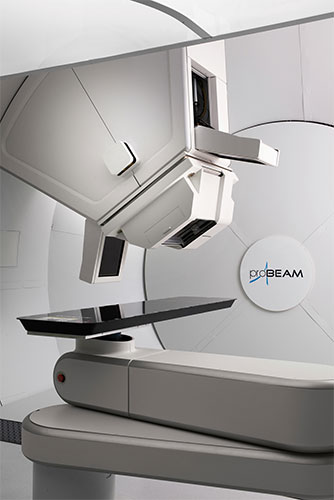 The University of Alabama at Birmingham announced today it has signed a memorandum of understanding with Proton International to develop Alabama’s first proton treatment center.
The University of Alabama at Birmingham announced today it has signed a memorandum of understanding with Proton International to develop Alabama’s first proton treatment center.
UAB has the only National Cancer Institute-Designated Cancer Center in Alabama and is the fourth organization to sign an agreement to work with Proton International to build a center providing proton therapy, a highly effective and precise alternative to traditional radiation therapy for treating cancer and some noncancerous tumors but without many of the side effects that often accompany treatment.
UAB Medicine will be among a select group of hospitals in the country to offer advanced proton therapy technology using a fully featured compact system with dynamic peak pencil beam scanning, developed by Varian Medical Systems.
Proton therapy is particularly effective in treating solid cancer tumors, including tumors of the brain, spine, head and neck, lung, prostate, colon, and some breast tumors. It is widely used to treat children with cancer because of its precision and reduction in long-term side effects, as children are particularly sensitive to the effects of radiation therapy.
Every new center will increase the number of proton treatment facilities enrolling patients in national data registries and in clinical research trials to document clinical outcomes and enhance the benefits from an appropriate use of the therapy.
“Protons will bring the latest cancer treatment technology to UAB, allowing us to treat deep-seeded cancers and spare surrounding normal tissue in certain difficult cases,” said Dr. James A. Bonner, the Merle M. Salter Endowed Professor and Chairman in the UAB School of Medicine Department of Radiation Oncology and president of the University of Alabama Health Services Foundation. “We are excited about the opportunity to offer this cutting-edge approach for patients and families in Birmingham, across Alabama and beyond.”
“UAB Medicine will be involved in offering a very important cancer treatment alternative to its patients with the addition of protons,” said Chris Chandler, CEO of PI, who founded the company after developing, opening and overseeing the operation of several proton centers in the United States and Europe. “UAB will offer the most advanced radiation technology available.”
There are 23 proton therapy centers operating in the United States today and another seven under construction.